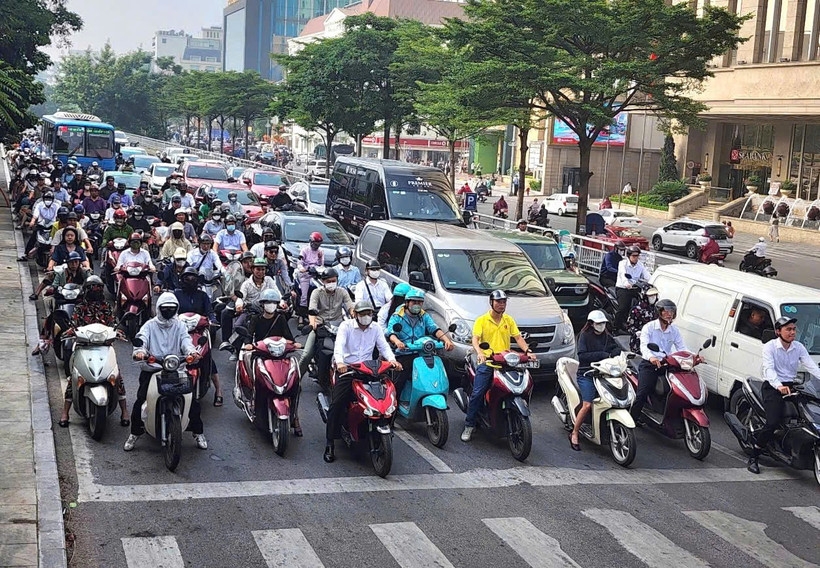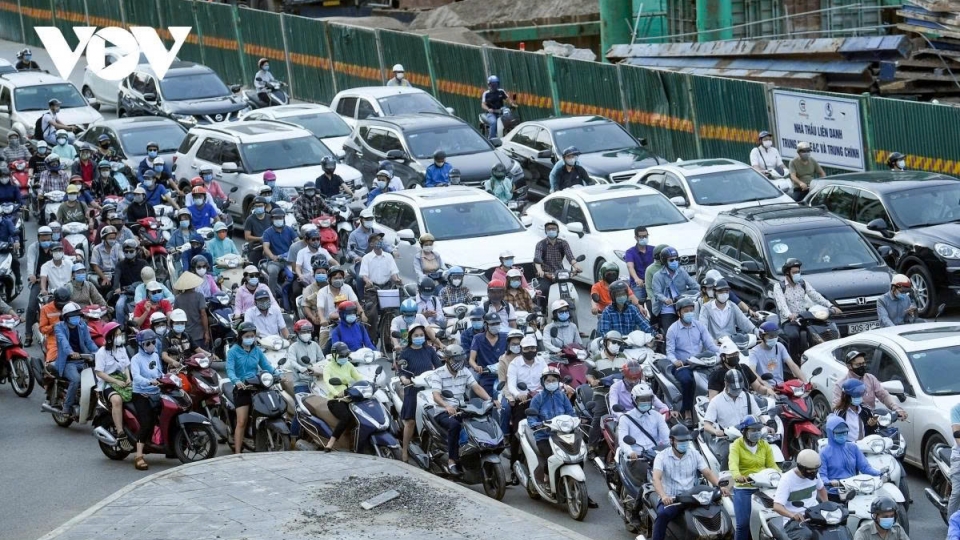Petrol vehicle market stalls as consumer sentiment wavers
While the electric vehicle (EVs) market is gaining momentum, dealers of petrol-powered cars and motorbikes, both new and used, in Hanoi are facing a wave of order cancellations, vehicle returns, and even deposit forfeiting.

Under the Prime Minister's Directive No. 20/CT-TTg issued on July 12, Hanoi will become the first Vietnamese city to ban fossil fuel-powered motorcycles and mopeds from the city's inner Ring Road 1, starting July 1, 2026. This move initiates the country’s gradual transition towards green transportation.
However, the ban has worried many consumers. Tran Thuy, a resident of Ba Dinh ward, recently bought a Honda SH motorbike worth VND74 million (US$2,830) as a gift for his son. However, before registering the vehicle, he learned of the planned ban on petrol motorbikes within the inner Ring Road starting next year. So he contacted the dealer to return the motorbike, but they refused since the invoice had already been issued, he said.
Similarly, Le Van Thanh from Nam Tu Liem shared his concern. He has just bought a Yamaha NVX for over VND55 million. Now, hearing about the petrol-fuelled vehicle ban, he becomes worried. The bike is practically new—less than 500 km—but reselling it would mean a heavy loss, he said, adding that the longer he keeps it, the more its value will drop.
Car owners are also uneasy. Doan Anh Dung, representative of C3 Auto, a used-car showroom, reported a sharp rise in cancellations due to concerns about the future of fossil-fuel vehicles.
“On July 14 alone, I received over a dozen calls from people wanting to sell their petrol cars, including relatively new models. Of the 40 cars we had in stock, seven customers either cancelled deposits or returned vehicles that day. Some who had already paid simply decided not to take their cars.”
Dung attributed much of the uncertainty to misinterpretation of the Government policy.
He explained that Directive 20 clearly states that from July 1, 2026, petrol and diesel motorbikes will be banned from circulating within Hanoi’s Ring Road 1. From January 1, 2028, the ban extends to petrol motorbikes and restriction targets private fossil-fuel cars within both Ring Roads 1 and 2. “But this is not a total ban—at least not yet,” he stressed.
Nonetheless, dealerships are reacting cautiously. This week, Dung’s firm plans to reduce imports, especially high-end models, to minimise risks. “We may also cut prices to accelerate sales,” Dung added.
However, not everyone is pessimistic. Hoang Shin, co-owner of My Dinh Auto Exchange, offered a more optimistic view. He said that his showroom is still selling 40–50 cars per month. Genuine demand is still there. Directive 20 is a long-term policy and hasn’t significantly affected the market yet, he held.
High costs, poor infrastructure, and calls for transition support
Switching from petrol to electric vehicles presents challenges that go beyond the purchase itself—financial, infrastructural, legal, and behavioural issues all come into play.
Pham Van Tuan from Ba Dinh ward pointed to cost as the primary barrier. Electric vehicles now cost at least VND600–700 million, he noted, saying that he retired with savings of about VND300–400 million, which isn’t enough to switch. “If I don’t switch, my petrol vehicle will become useless in the city centre.”
Petrol motorbike owners shared similar concerns. Mai Thi Huyen from Tay Ho said that she bought a motorbike worth over VND40 million recently for work. Selling it now means losing at least VND7–10 million. But keeping it means she can’t enter the inner city next year—it’s very inconvenient, she stated.
Many residents cited the high initial investment and stagnant income levels as major hurdles. Poor charging infrastructure is another barrier, especially in old apartment buildings and narrow tube houses.
“We can’t charge vehicles in basement garages. To charge, we have to go to shopping centres - it’s both costly and inconvenient,” said Nguyen Linh from Cau Giay.
Experts praised Hanoi for leading the way in limiting fossil-fuel vehicles, but warned that without a clear transition roadmap and supporting policies, citizens and businesses will face considerable strain.
Calls are growing for the Government to offer direct financial assistance for vehicle replacement such as subsidies for switching to EVs, VAT reductions on electric vehicles, low-interest loans, or free installation of home chargers for early adopters.
Buy-back schemes for old petrol vehicles are also being recommended to ease resale difficulties and financial pressure.
Significant investment in public charging infrastructure will be critical, particularly in residential areas, shopping centres, transport hubs, and repurposed petrol station sites.
Automotive expert Nguyen Tuan emphasised that green transport is the right direction, but policies must prioritise citizens and businesses. The transition should be fair, flexible, and clearly phased, he underscored.
Directive 20 signals the beginning of a green revolution in urban transport. To realise its goals, experts agreed that comprehensive solutions - spanning finance, infrastructure, and communication, alongside coordinated action between government, businesses, and the public - are essential. Only then can green transport be truly sustainable and widely adopted.



